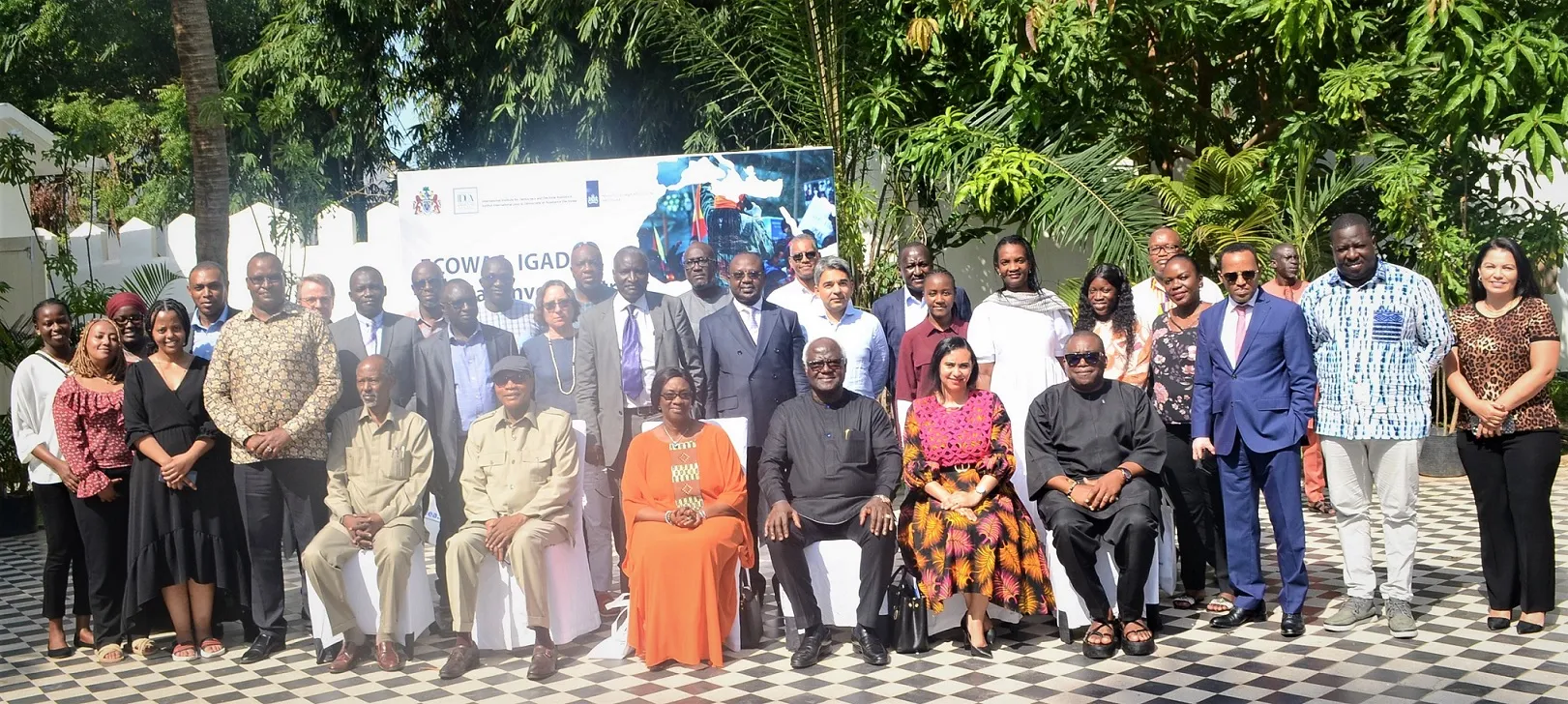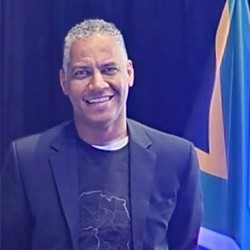First Annual Retreat for ECOWAS and IGAD Special Envoys: Lessons Learned and Recommendations

International IDEA organized the First Annual Retreat for Special Envoys and High Officials of ECOWAS and IGAD on Unconstitutional Changes of Government and Constitutional Transitions, from 21 to 23 October 2022 in Banjul, The Gambia. This activity fell under Section IV B of the Overview of International IDEA Programming submitted to the Netherlands Ministry of Foreign Affairs (MFA).
The relevant programming under Section IV B aims to contribute to the Netherlands' MFA DSH Theory of Change Objective which aims to enable stakeholders to contribute to sustaining peace, to prevent the outbreak, continuation, escalation, and recurrence of violent conflict by supporting efforts focused on conflict transformation and resolution at various levels, including third-party mediation.
The Retreat specifically sought to:
- Enable an exchange of experiences among special envoys and other participants on constitutional transitions and Unconstitutional Change of Governments (UCGs)
- Enhance the capacity of special envoys through sharing of knowledge, data (based on International IDEA's Global State of Democracy (GSOD) database) and comparative lessons from continental, sub-regional and internal experiences on responses to UCG and constitutional transitions
- Allow a shared understanding of the peace and security landscape in the ECOWAS and IGAD regions, and their interaction with UCG and constitutional transitions; and
- Strengthen relationships between International IDEA and RECs to enhance cooperation on preventing and addressing UCG and supporting inclusive constitutional transitions.
The discussions in the Retreat were divided into five sessions structured around the following topics:
- The state of constitutional transitions and UCGs in ECOWAS and IGAD Regions
- The impact of constitutional transitions and UCGs on security and democratic development in ECOWAS and IGAD Regions—in the format of High-Level Panel for ECOWAS and IGAD Special Envoys and mediators
- ECOWAS and IGAD responses to constitutional transitions and UCGs; comparative knowledge from abroad; and
- Interactions between mediation and constitutional transitions/UCGs.
Following the panel discussions, participants were given the opportunity to ask questions and make comments in relation to the matters discussed by the panelists.
Lessons Learned from the Conversations
The following lessons emerged from conversations during the Retreat:
- There was unanimous agreement that UCGs and constitutional instability are current critical challenges for Africa and particularly for the West, Sahel as well as Horn of Africa Regions
- While the diagnosis of reasons of these UCGs and constitutional instability are very well documented by ECOWAS, IGAD, AUC as well as other international partners, there is an urgent need to identify their root causes to prevent them as well as to propose concrete and sustainable responses to mitigate them
- In the meantime, it is important to support the review of the ECOWAS Protocol on Democracy and Good Governance as well as to support the finalization of an IGAD regional framework on Governance
- The current Early Warning Systems and Mechanisms of ECOWAS, IGAD and AUC are very weak to respond to rapid recurrence of UCGs and constitutional instability that often are supported by citizens, particularly the youth and other marginalized groups, such as in Burkina Faso and Mali. There is an urgent need to strengthen their capacity to anticipate these phenomenon—including by developing data on democracy dissatisfaction which is a common thread in countries affected by these events
- Flexibility and quick response time are critical. Responses to UCGs and constitutional transitions, like political settlement processes in general, rarely—if ever —follow a predictable timeline. They can oscillate between extended periods of little movement, sudden regression, and moments of rapid progress. It is crucial to maintain flexibility in programmatic responses and to be able to respond quickly to changing circumstances; and
- The current accelerated deterioration of the democratic governance landscape in West, Sahel and Horn of Africa must be seen as a call for learning from past experiences on responses to UCGs and constitutional transitions, as well as moving from rhetoric to action. There is an urgent need to design, develop and implement a comprehensive mechanism to respond to the rapid recurrence of UCGs and constitutional instability which will complement—and not duplicate—existing early warning mechanisms and will include proactive support to Special Envoys and High-Level Mediators of these regions.
Recommendations
The following recommendations arose from the panel and participants’ discussions:
- There is a need to move away from classical responses to UCGs and constitutional transitions in ECOWAS and IGAD Regions imposed in a top-down manner by various stakeholders. Using the lens of the (re)building a social contract could allow for more effective options/scenarios to promote/reinforce inclusive governance as well as sustainability in the strategies for a return to constitutional order in fragile and conflict affected countries of these regions
- There is an urgent need for both formal and informal governance mechanisms (such as creating an enabling environment, developing consensus building platforms, making political decision-making more inclusive, and empowering people…) to (re)build trust among stakeholders and contribute to a more inclusive and accountable response to UCGs
- International IDEA and its partners (from the Netherlands MFA DSH, AUC, UNDP, and with the approval of the Department of Political Affairs, Peace, and Security of ECOWAS, should prioritize the work towards establishment and implementation of a West Africa Facility on Support to Inclusive Transition (WAFSIT) which will complement existing Early Warning Mechanisms and will include technical assistance to Special Envoys and High-Level Mediators. The WAFSIT could be designed, based on the subsidiarity principle, with respect to the AU Africa Facility on Support to Inclusive Transition to be established by the African Union Commission in the long term; and
- International IDEA should organize a similar exercise next year, and involve more Regional Economic Communities (ECCAS, EAC, SADC) in a comparative perspective, to continue the conversation and assess progress made in the establishment and implementation of the WAFSIT.
Ways Forward and Next Steps
The following ways forward and next steps have been agreed:
- International IDEA to continue the Conversation with ECOWAS and UNDP on the formalization of the WAFSIT, particularly during the subsequent Round Table on the State of Governance in the Sahel to be organized in Dakar from 14 to 15 November 2022
- International IDEA to organize in Abuja with the support of the Netherlands Embassy in Nigeria, first quarter of 2023, a strategic meeting on the design of the West Africa Facility on Support to Inclusive Transition. The meeting should bring together ECOWAS Leadership, Regional Special Envoys and Mediators, Experts and Resources Persons on Mediation in UCGs and Constitutional Transitions; and
- International IDEA to organize in the Hague with the Netherlands Ministry of Foreign Affairs DSH an experience sharing, and lessons learned workshop for ECOWAS Leadership, West Africa Special Envoys and High-Level Mediators on design and processes of Mediation in UCGs and Constitutional Transitions.




